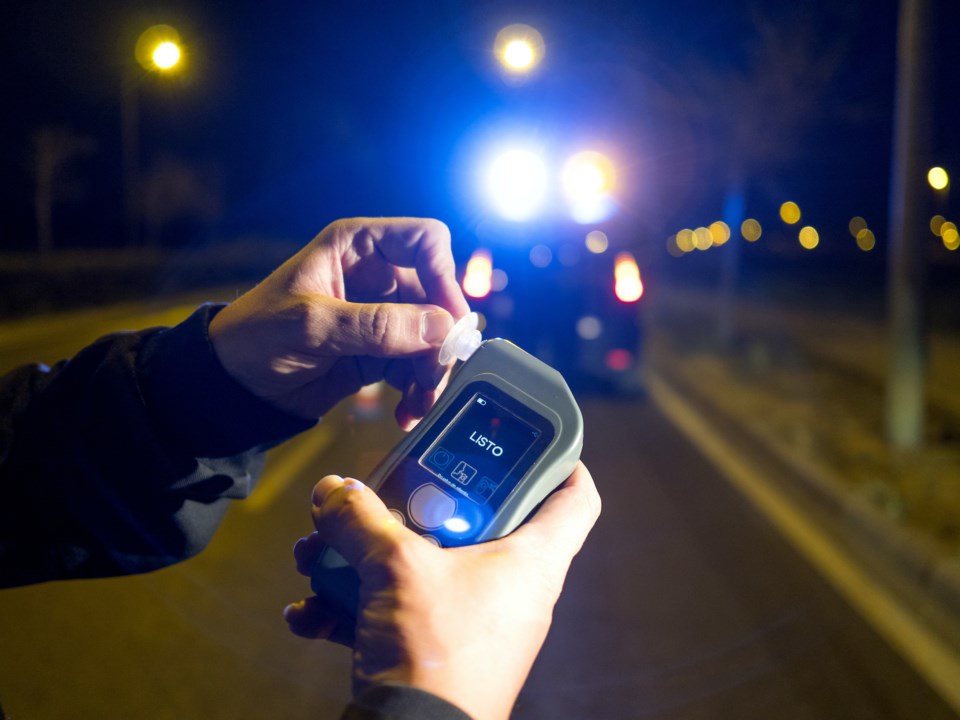LAKELAND – More than a year ago, the laws around impaired driving changed Canada-wide. The effects of these changes have caused ongoing conversations related to alcohol screening by police, according to RCMP S/Sgt. Sarah Parke.
On Dec 18, 2018, Bill C-46 passed in the House of Commons, becoming law in Canada.
The Bill includes mandatory alcohol screening, which gives police officers the authority to “demand that any lawfully-stopped driver provide a preliminary breath sample to test for alcohol without reasonable suspicion that the driver has alcohol in their body,” explained Parke, in a statement.
By implementing Bill C-46, Alberta RCMP removed 698 impaired drivers from Alberta roadways in the month of October alone. “That’s almost one impaired driver per hour,” noted Parke.
More recent changes to impaired driving laws in Alberta took effect on Dec. 1, 2020.
Bill 21 became law in the Alberta and included changes to the Immediate Roadside Sanctions Program and additional sanctions for offenders convicted of impaired driving.
Parke stated that “the new Immediate Roadside Sanctions (IRS) Program provides a comprehensive array of serious, immediate and escalating consequences for impaired drivers — a system that has been proven to reduce impaired driving significantly in other jurisdictions.”
Since the passing of Bill 21, consequences for drivers now include driver’s licence suspensions, new fines, vehicle seizures, mandatory education, and participation in the Ignition Interlock Program (IIP).
Impaired driving consequences that have increased further under the new IRS Program include: driver’s licence suspensions of 15 months for first offence – longer for repeat offenders; first offence fines of $1,000, with increasing fines for repeat offenders and vehicle seizure of 30 days.
There are also mandatory education programs for offenders. Impaired driving offenders still wanting to operate a vehicle can choose to pay for the IIP after 90 days of suspension with extended periods of IIP for repeat offenders, and depending on the circumstances, criminal code charges can still be laid by police.
Impaired driving is the leading criminal cause of death and injury in Canada, according to the Government of Canada.
“In 2017, there were more than 69,000 impaired driving incidents reported by the police, including almost 3,500 drug-impaired driving incidents,” states the federal website.
Drug-impaired driving
In regard to drug-impaired driving, Parke told Lakeland Today that “While the legal recreational use of cannabis may be relatively new, the enforcement of laws around the illegal production, distribution and consumption of cannabis as well as drug-impaired driving is not new to the police.”
She continued, “Drug-impaired driving is, and remains illegal in Canada and the Alberta RCMP is focused on keeping impaired drivers off Alberta roads.”
In order to detect, deter, and enforce drug-impaired driving, there are select Alberta RCMP officers who are trained to use roadside Standard Field Sobriety Testing (SFST) and Drug Recognition Expert (DRE) evaluations.
“Drug-impaired drivers can face serious consequences like fines, license prohibitions and jail time. But for specific consequences, those are handed out by Alberta Justice,” Parke explained.
Currently, the Media Relations Unit of the Alberta RCMP is working on putting together provincial statistics for drug-impaired driving. This data is expected to be released soon.
The Alberta RCMP asks if you drink or toke, don’t drive. “Plan ahead to have a safe ride home.”



